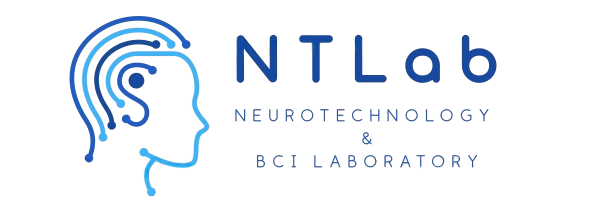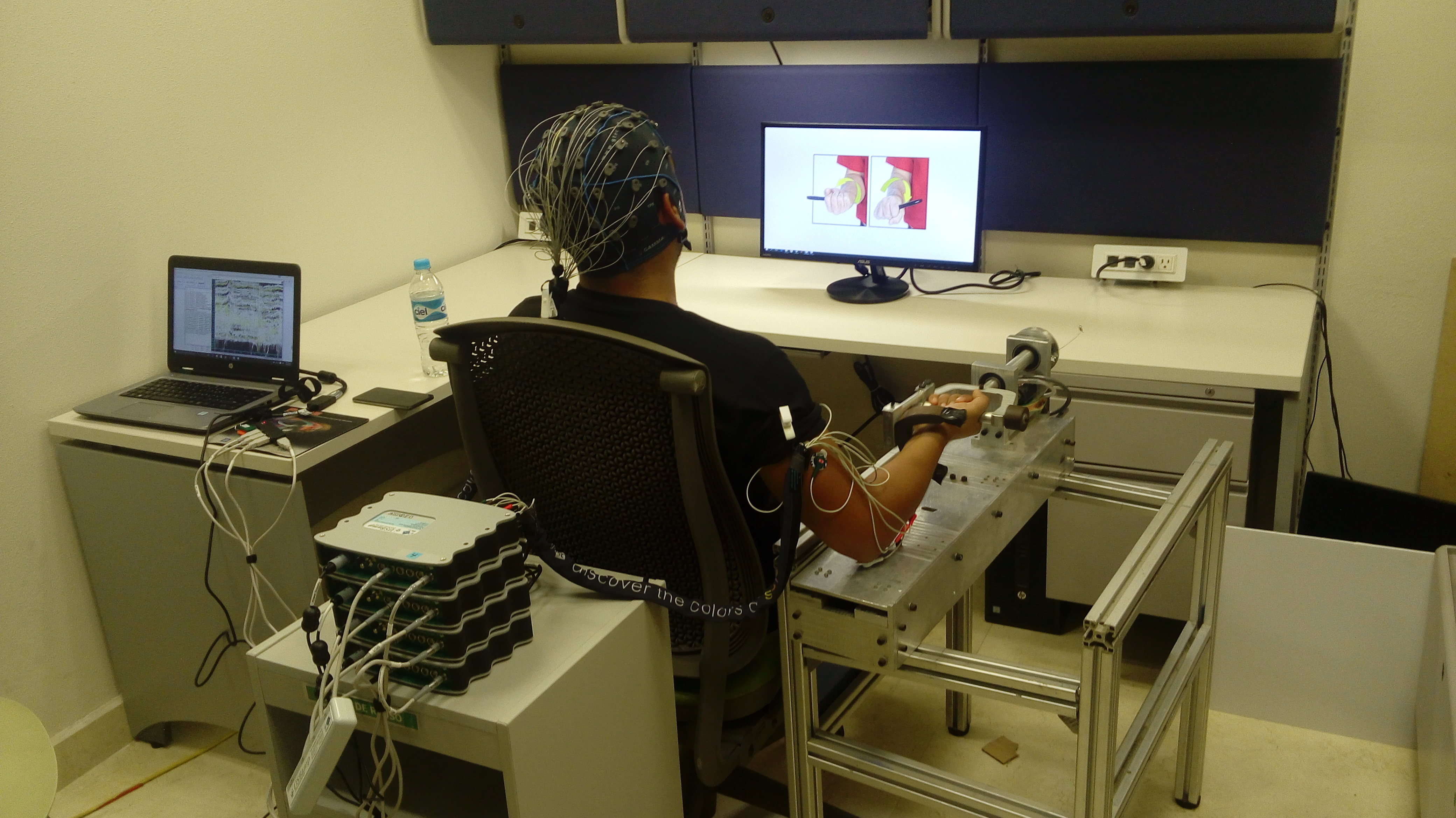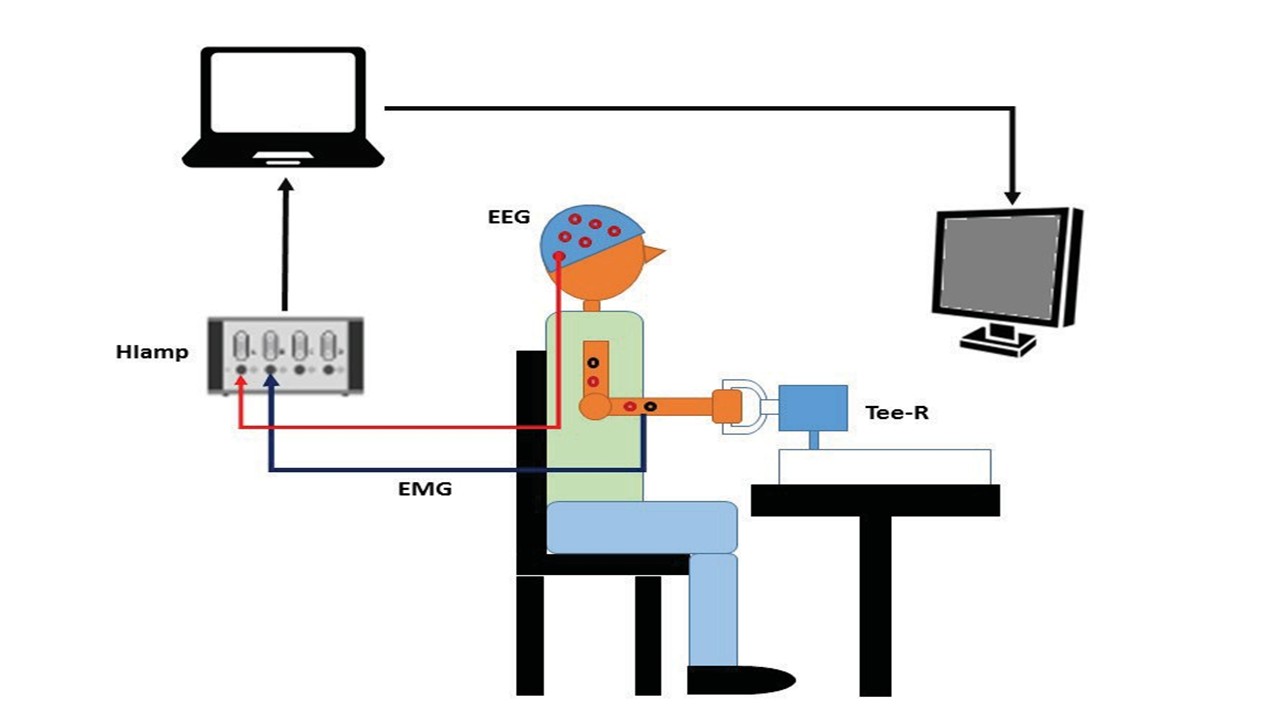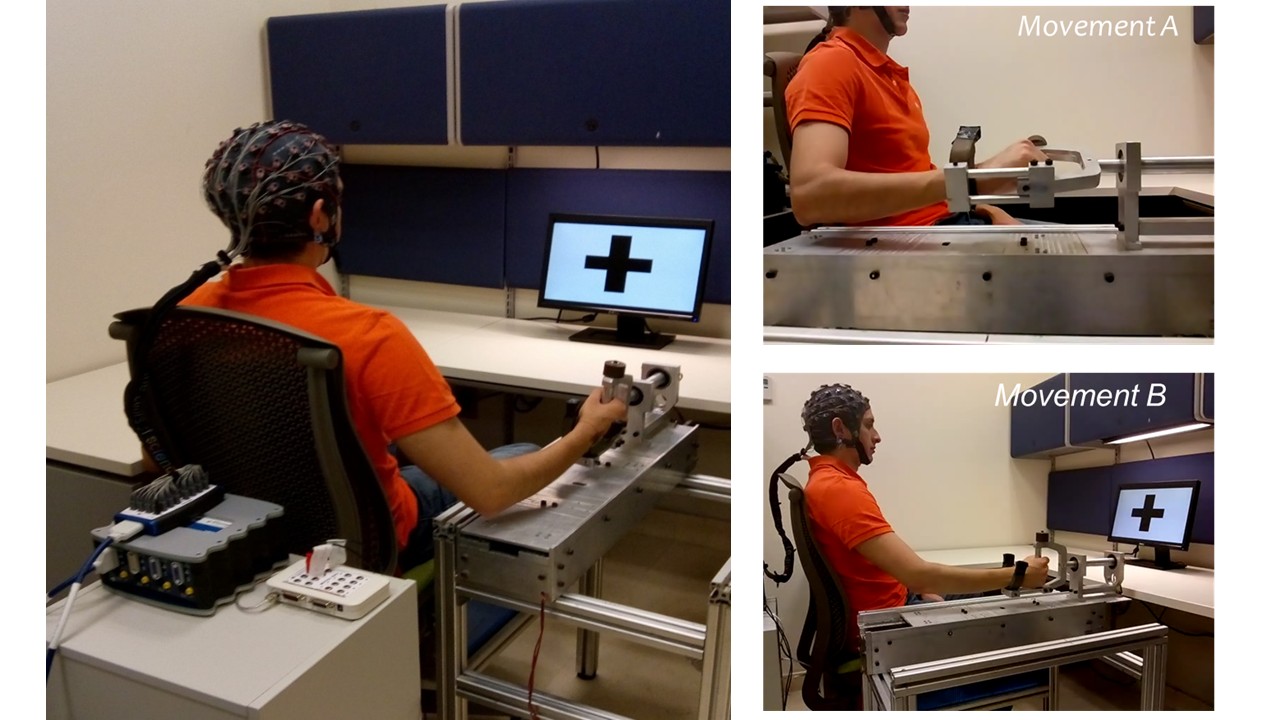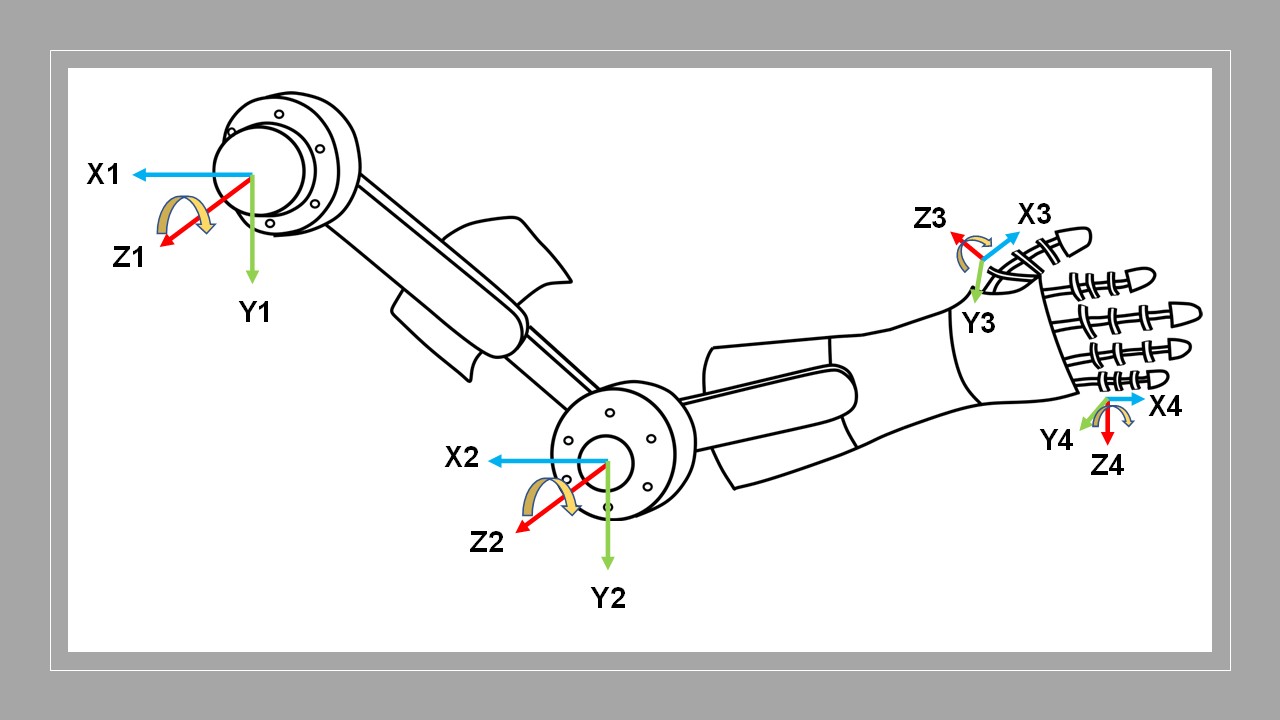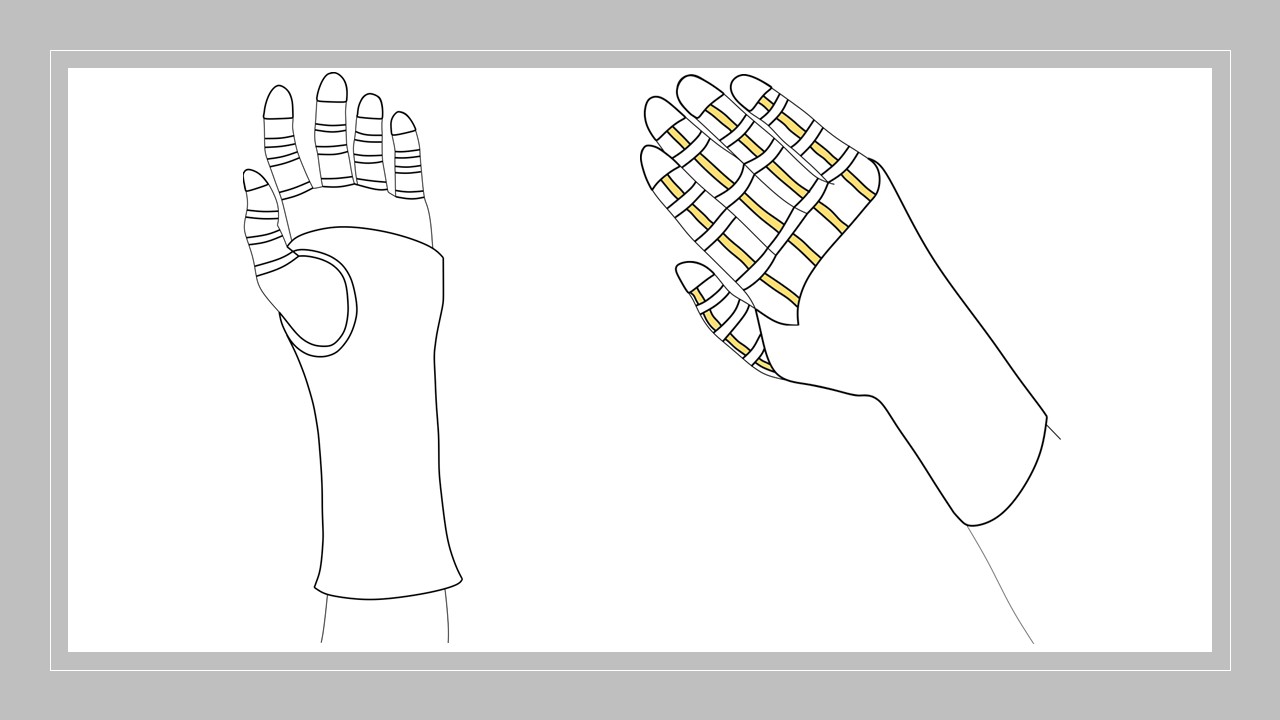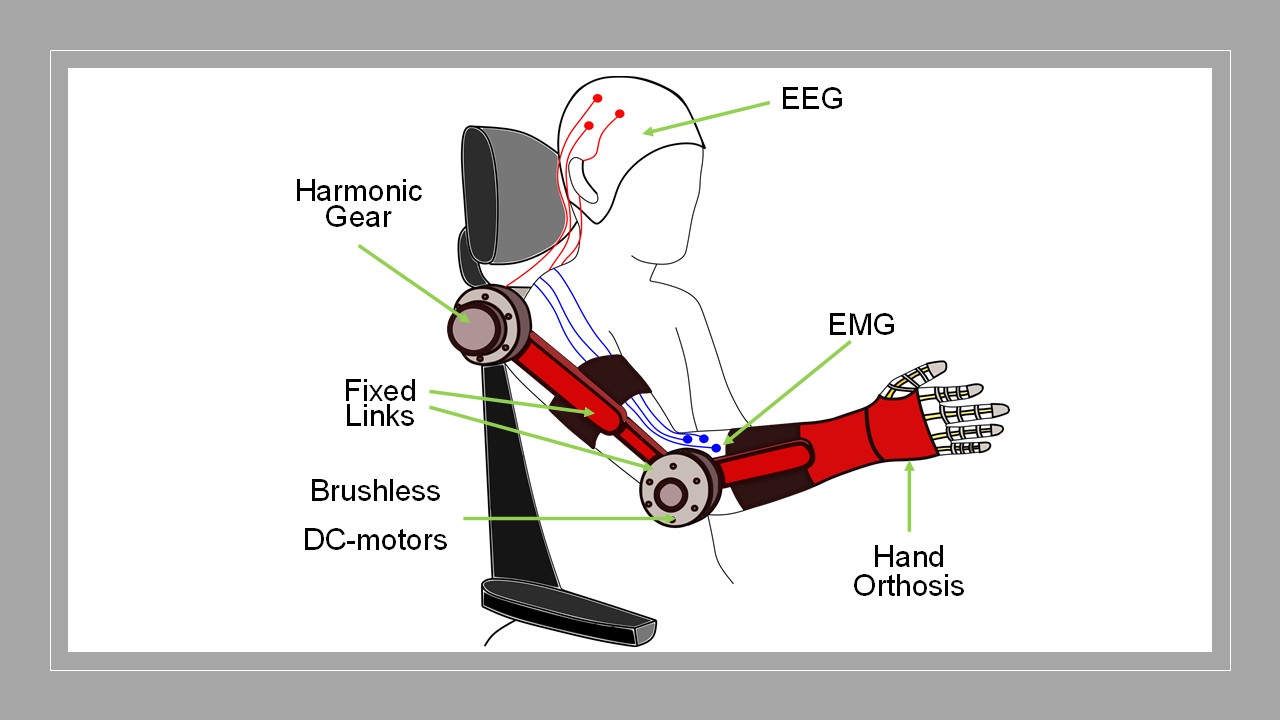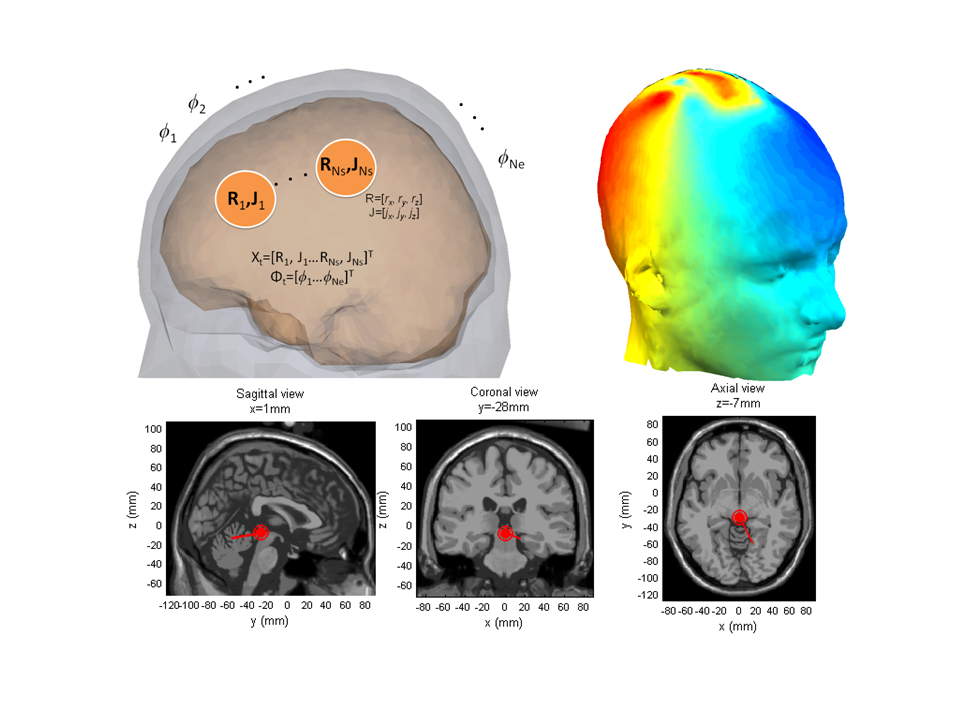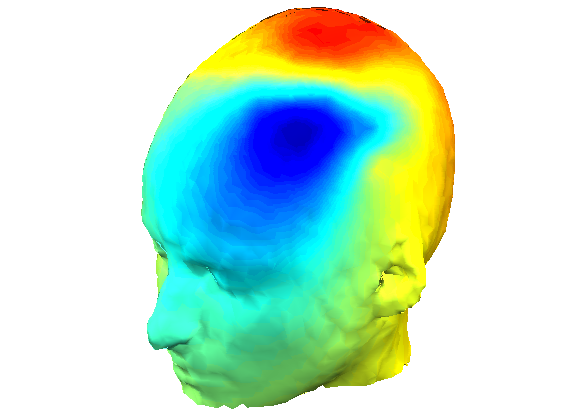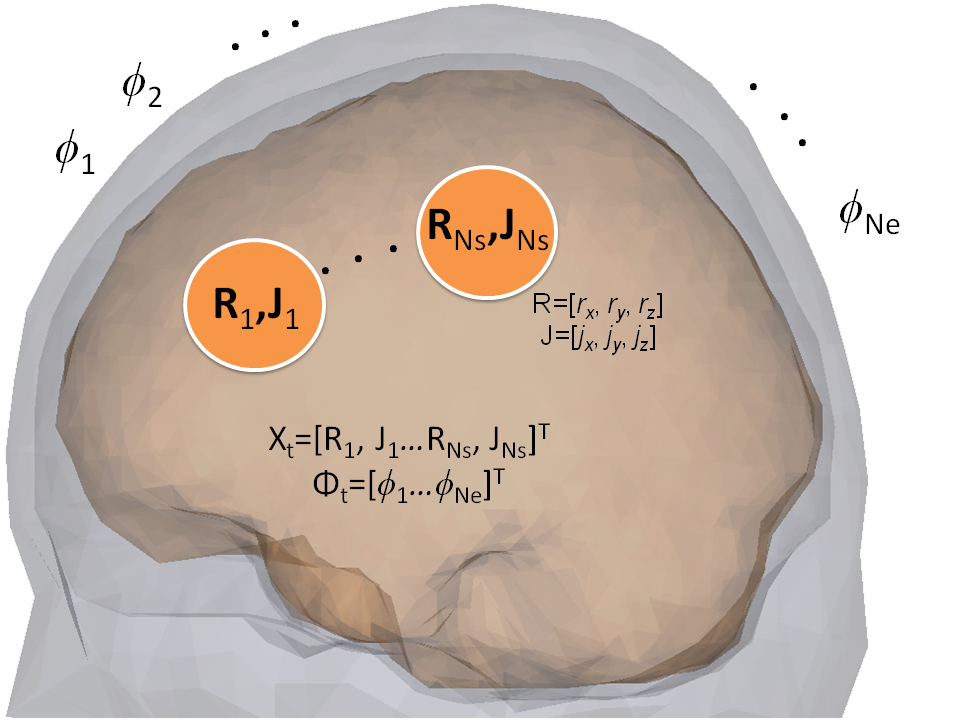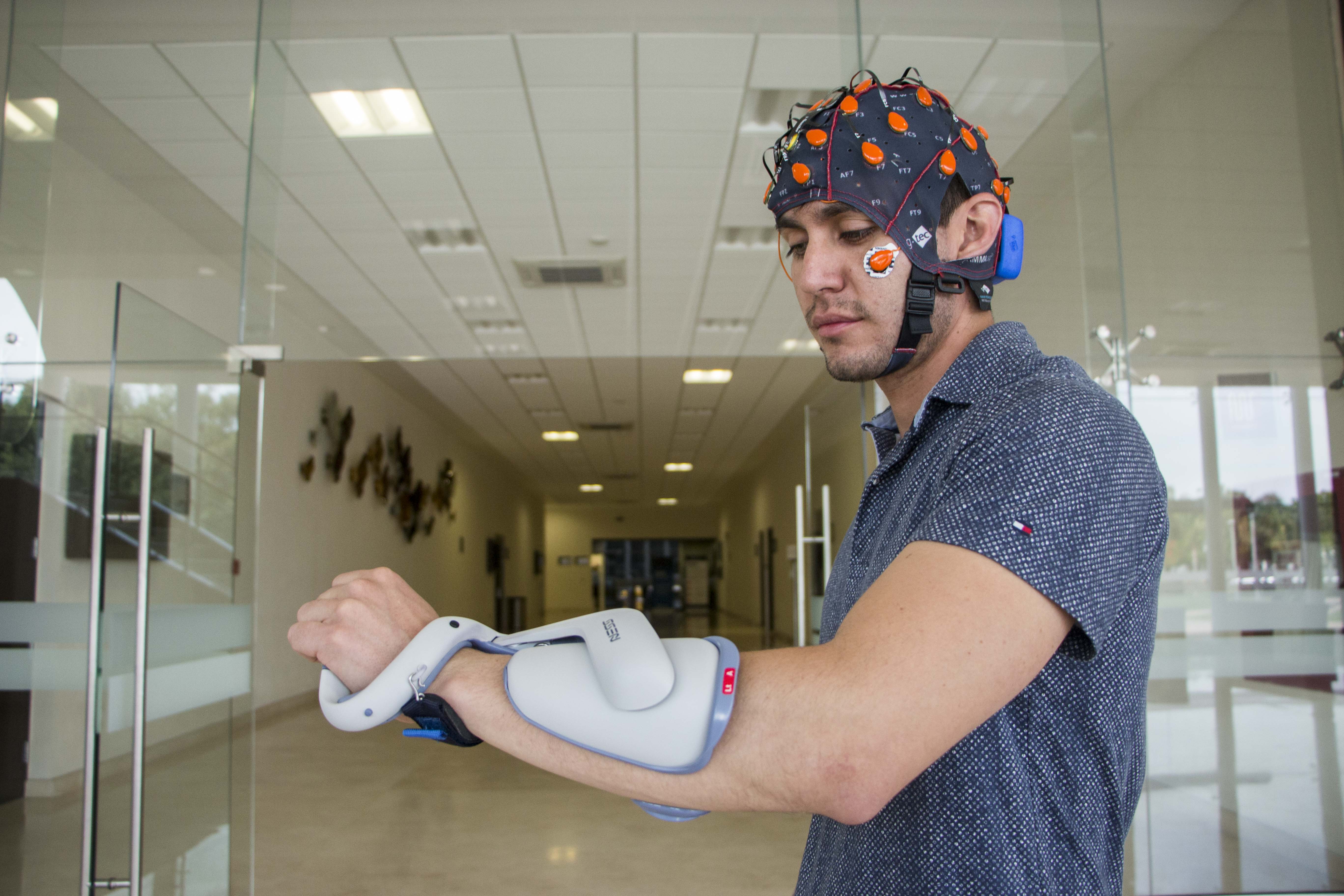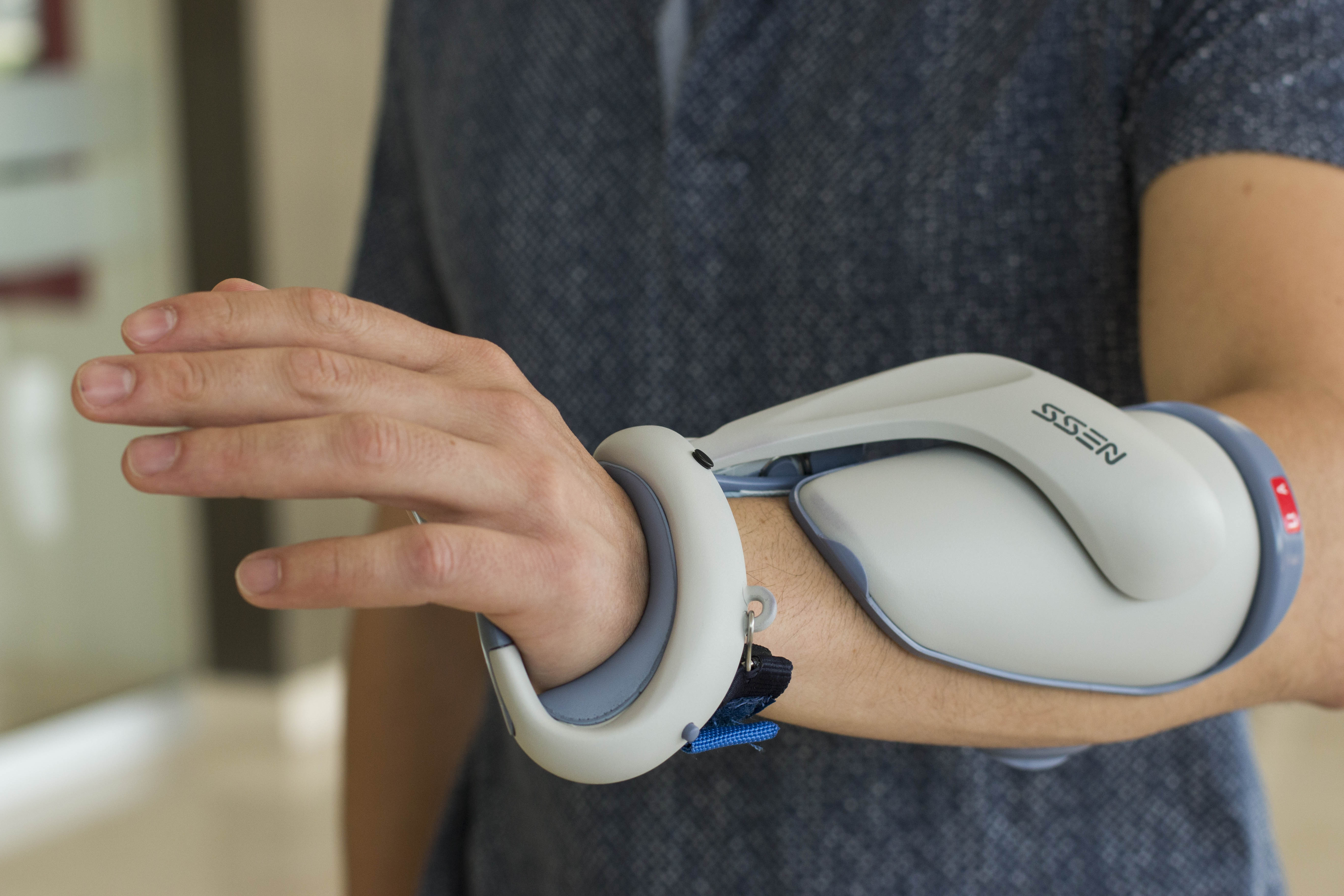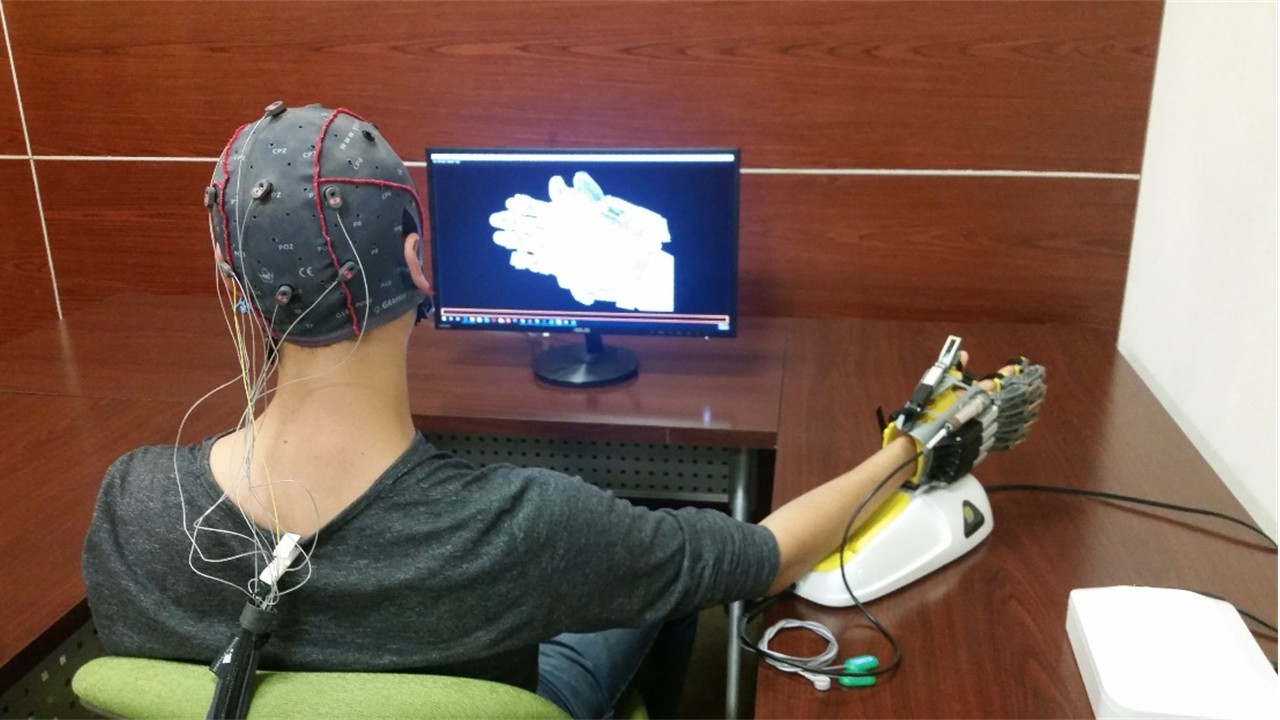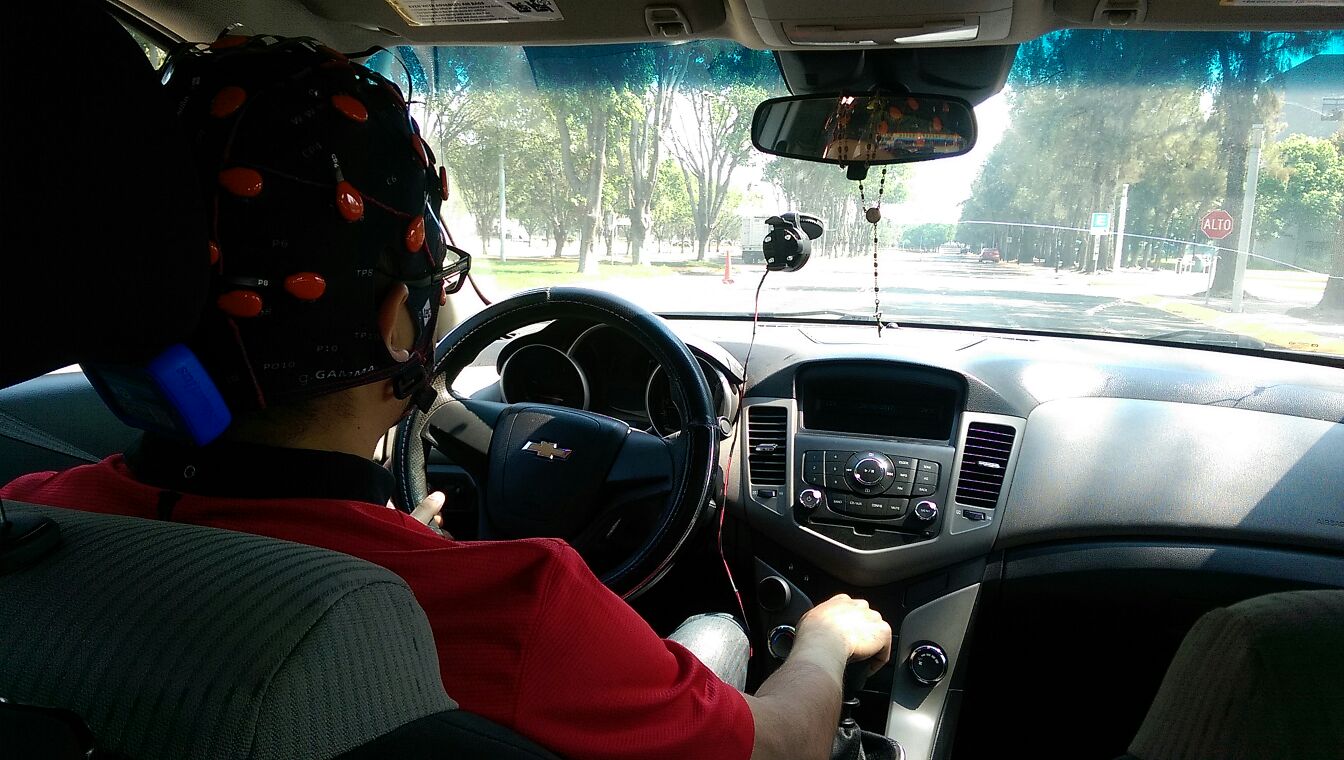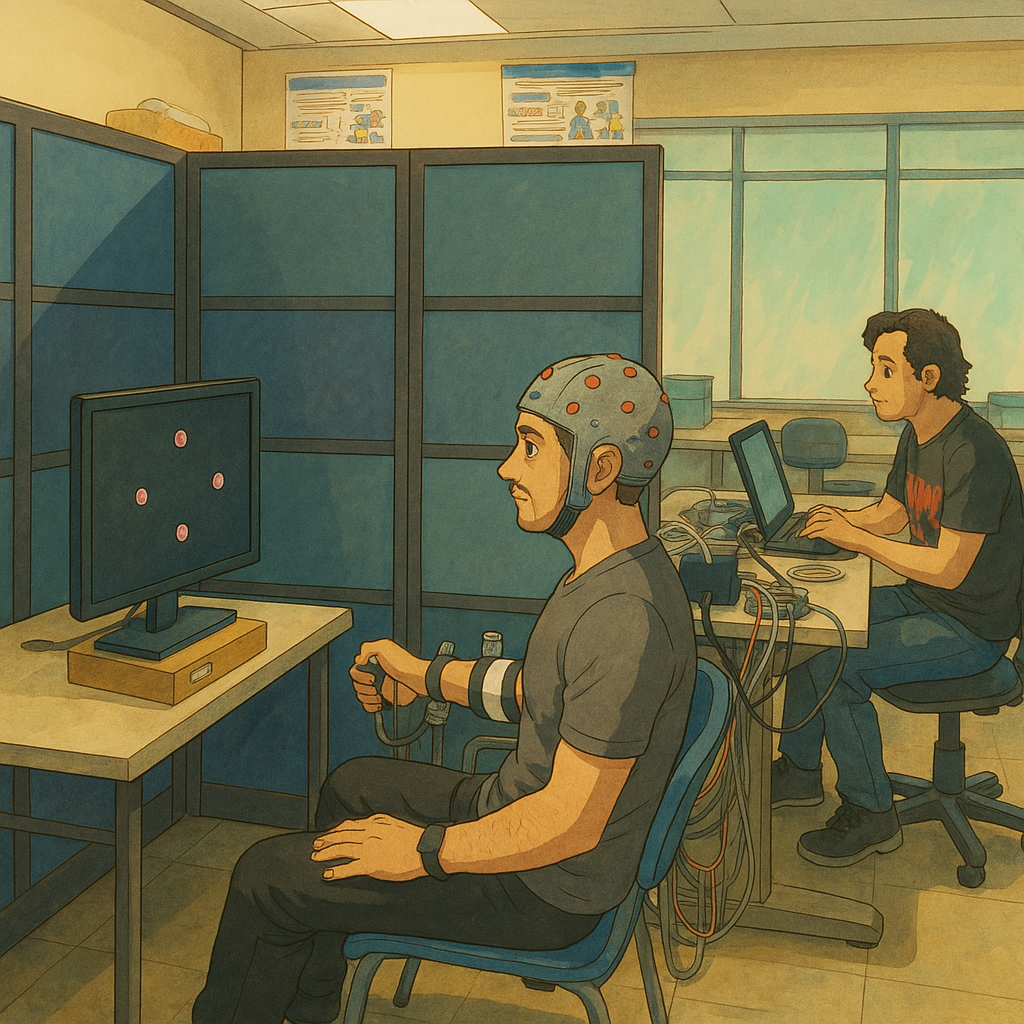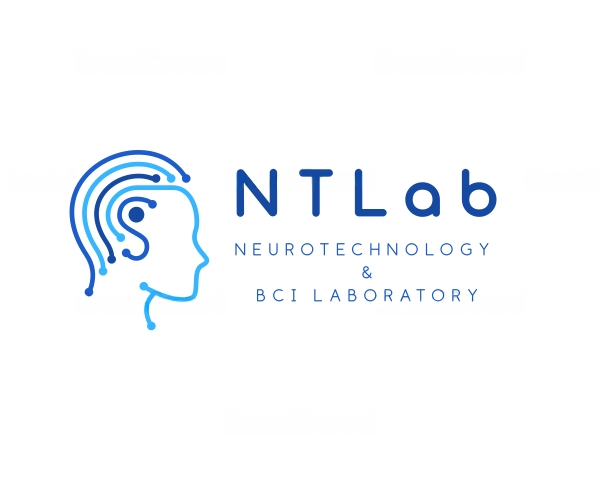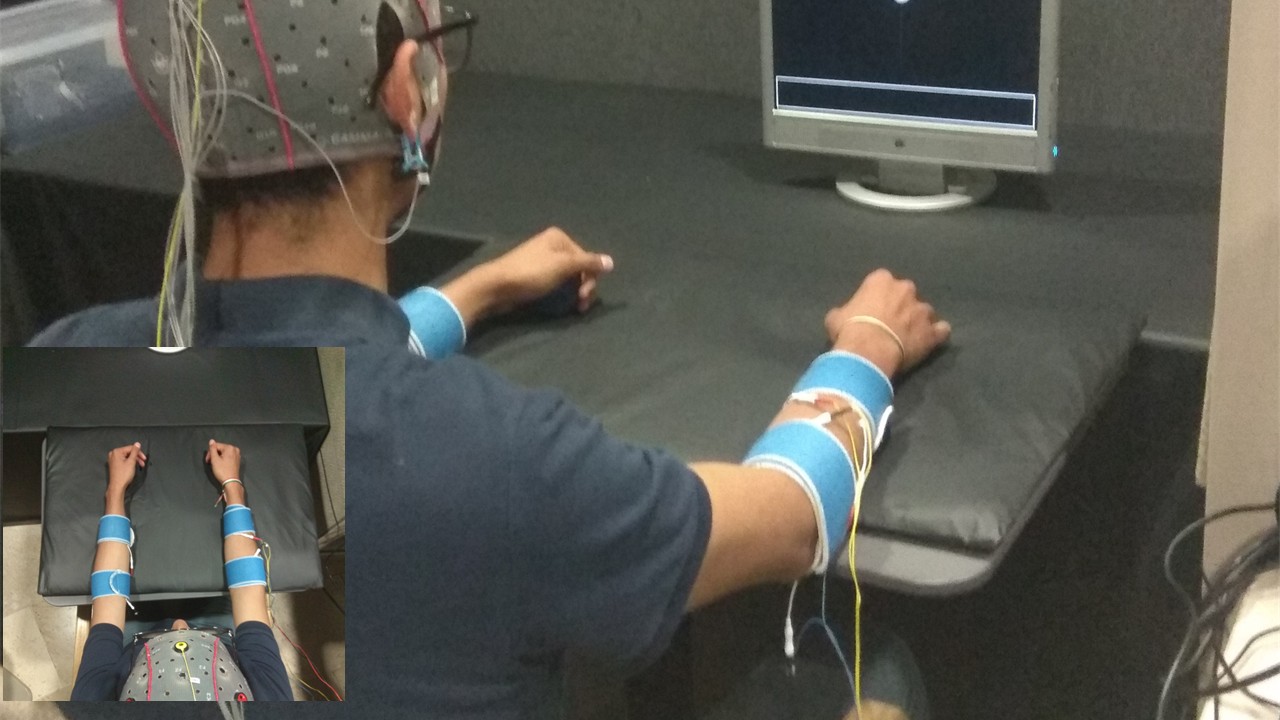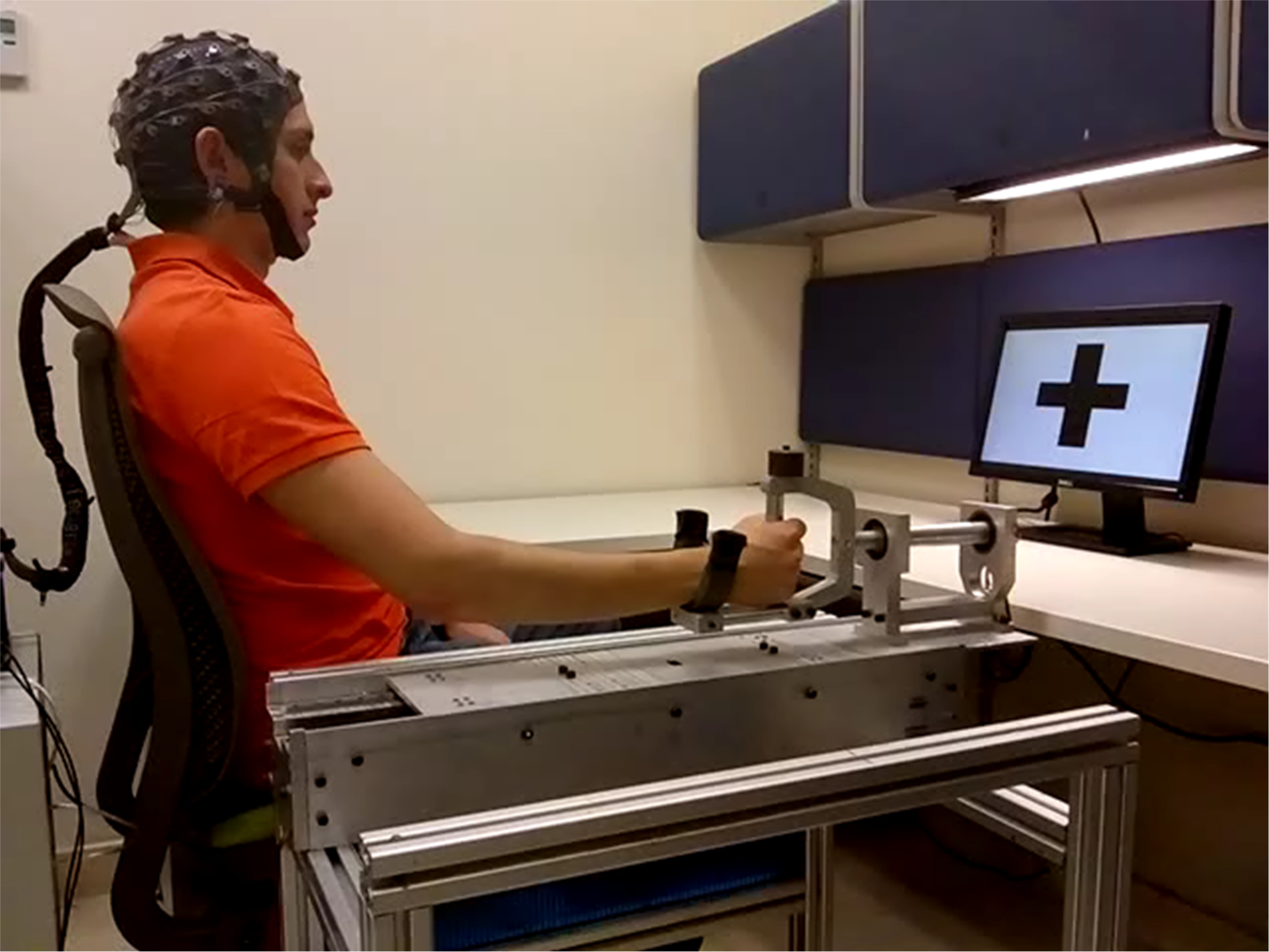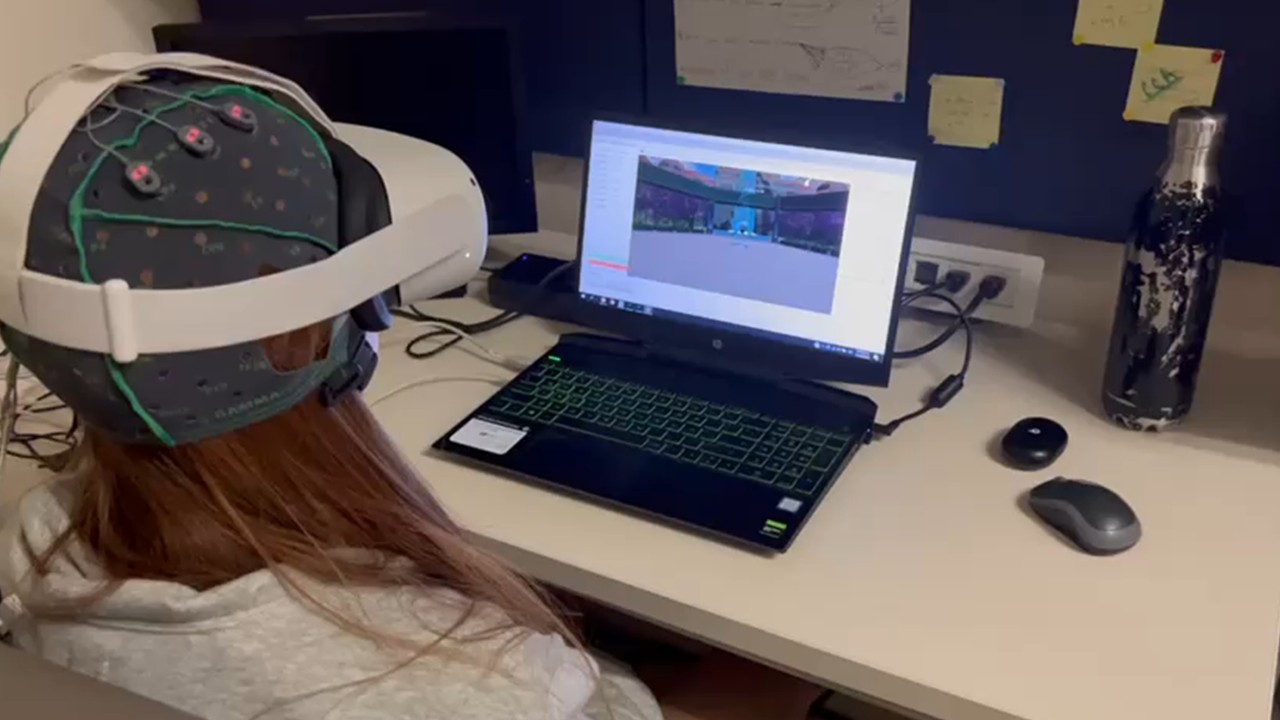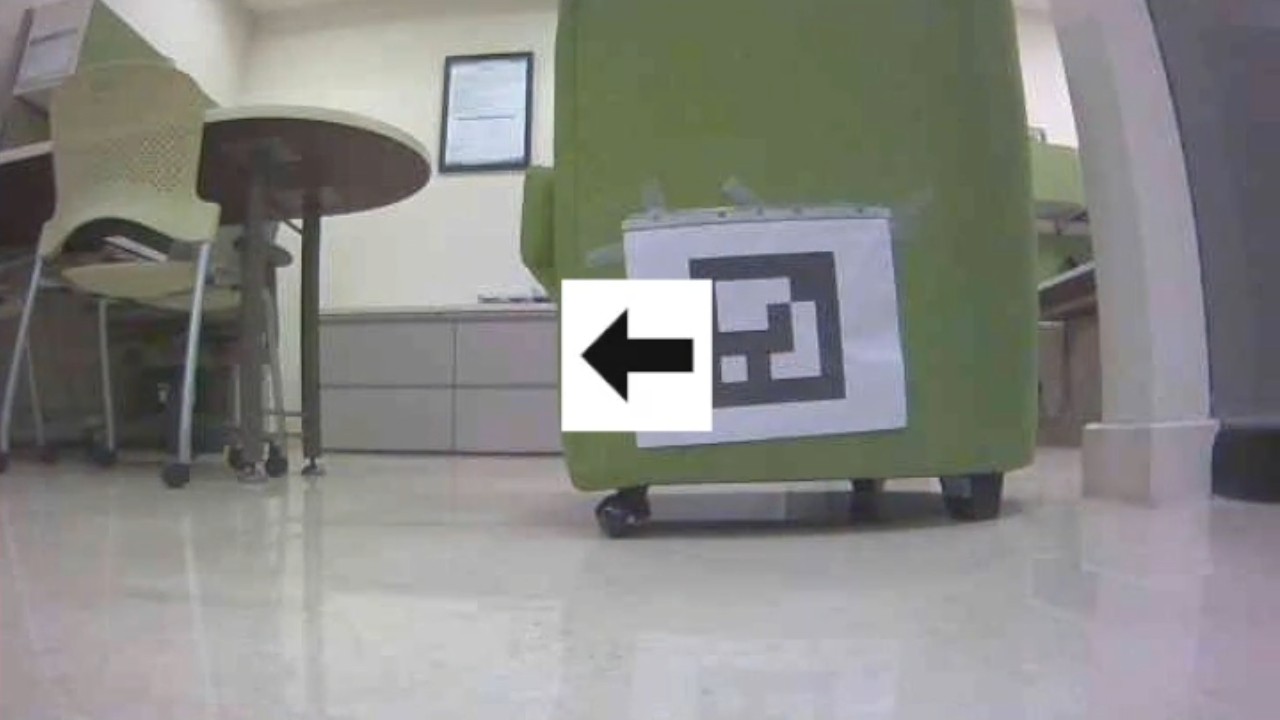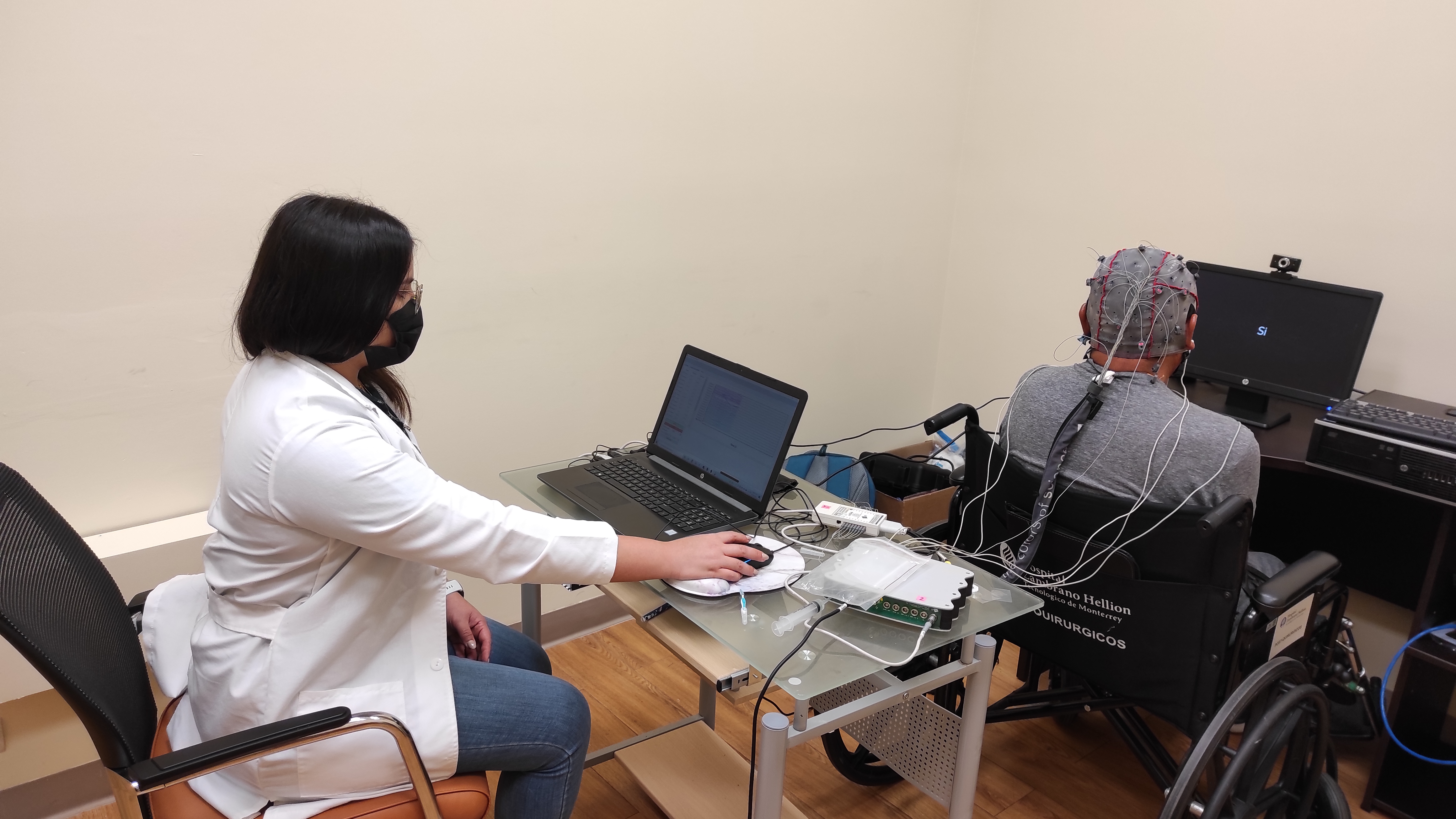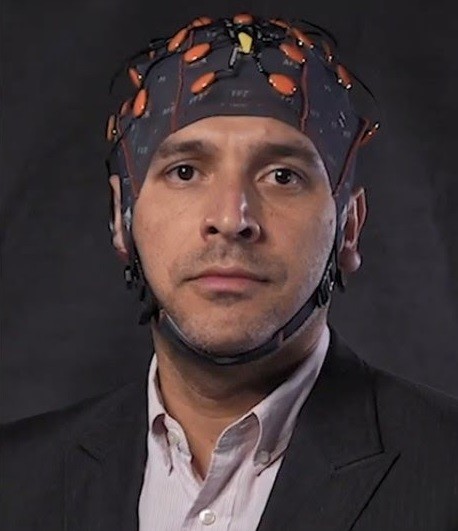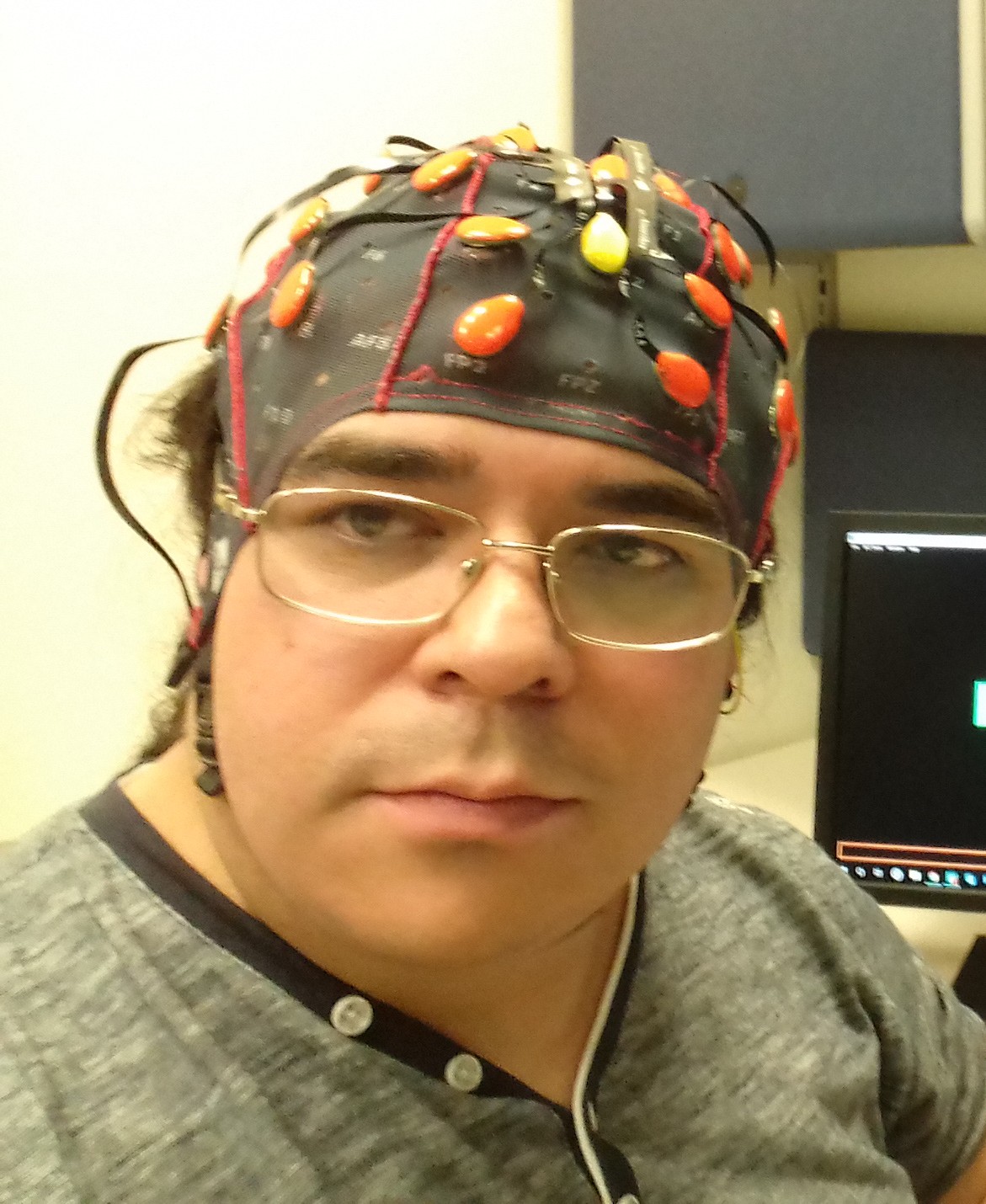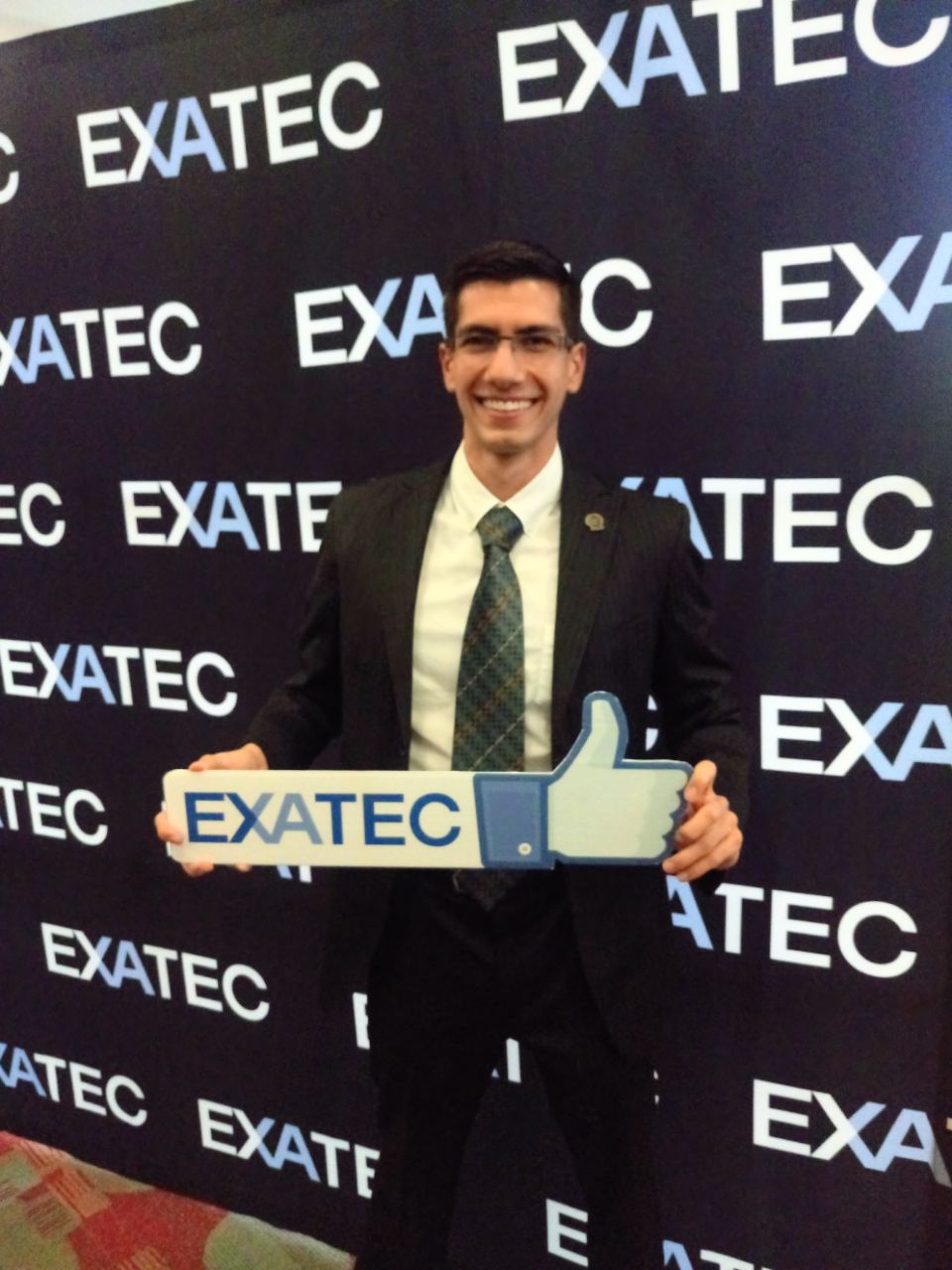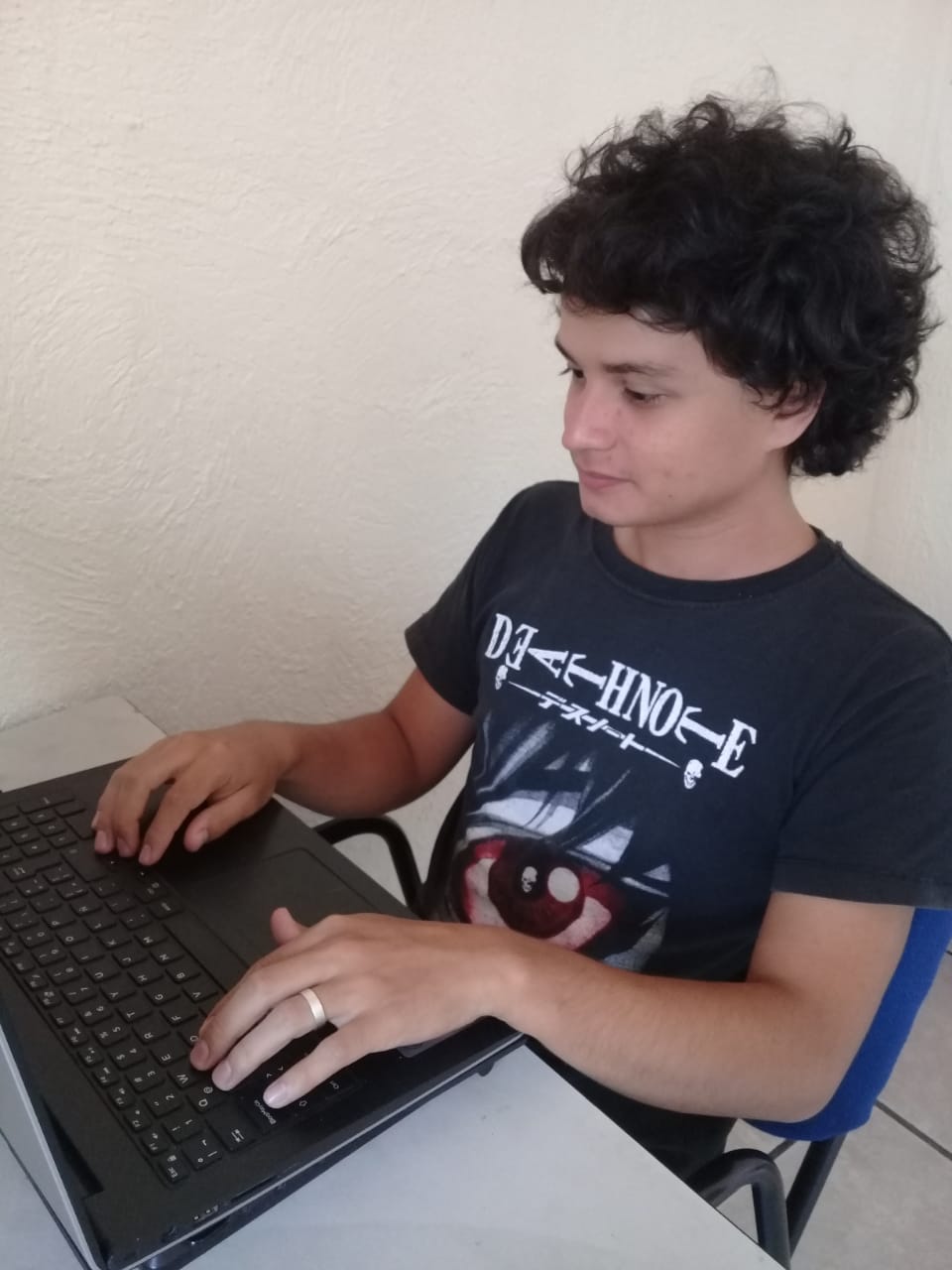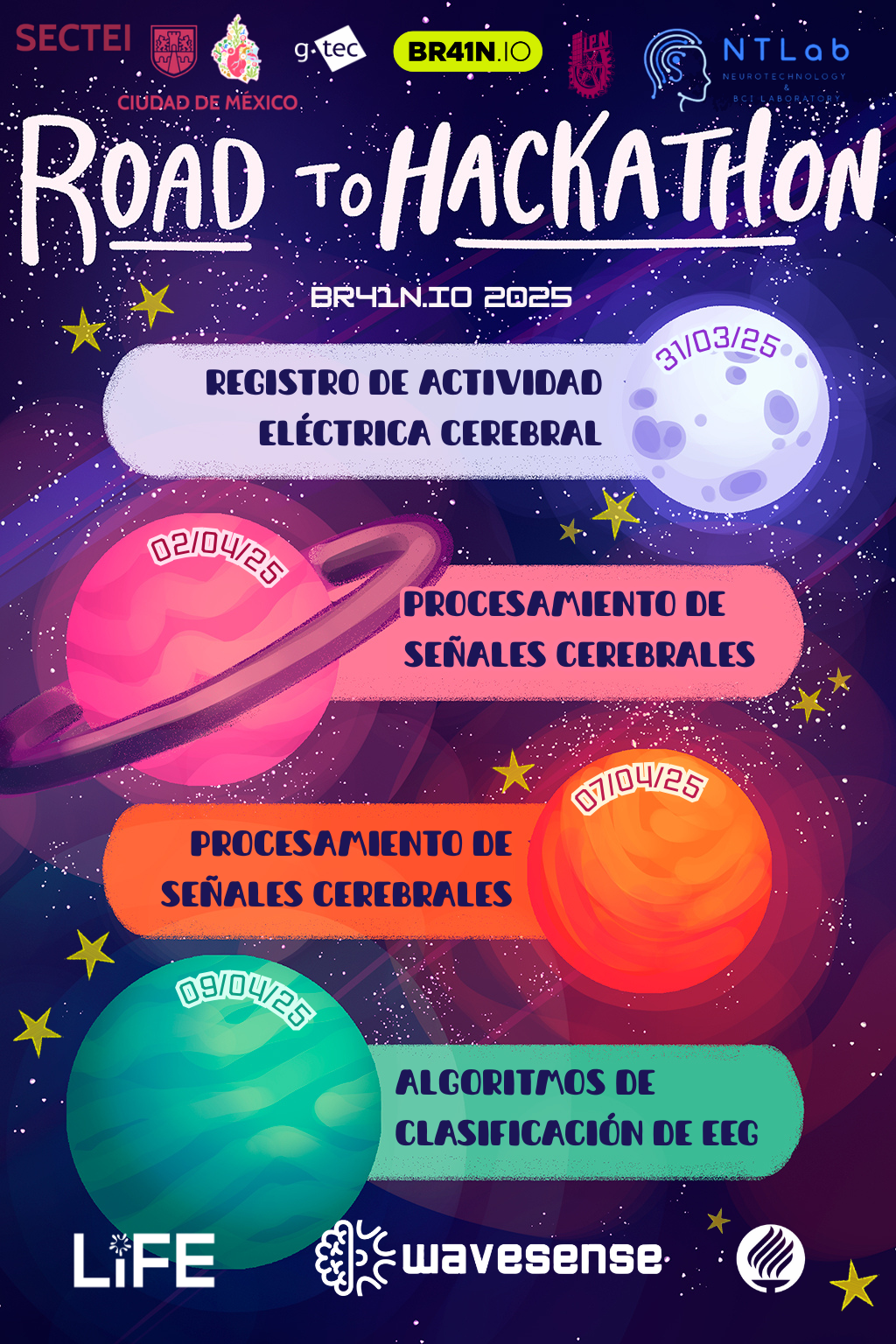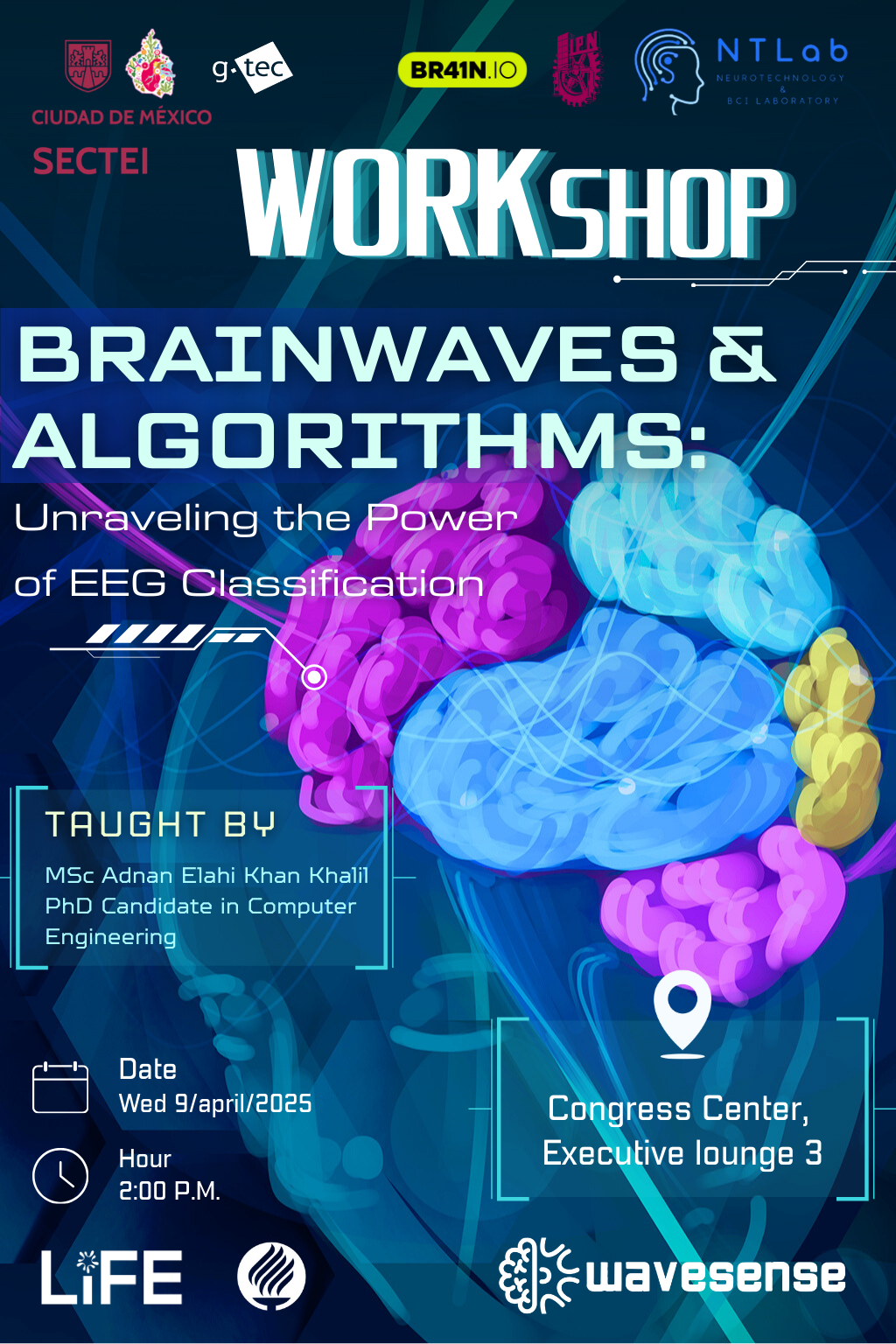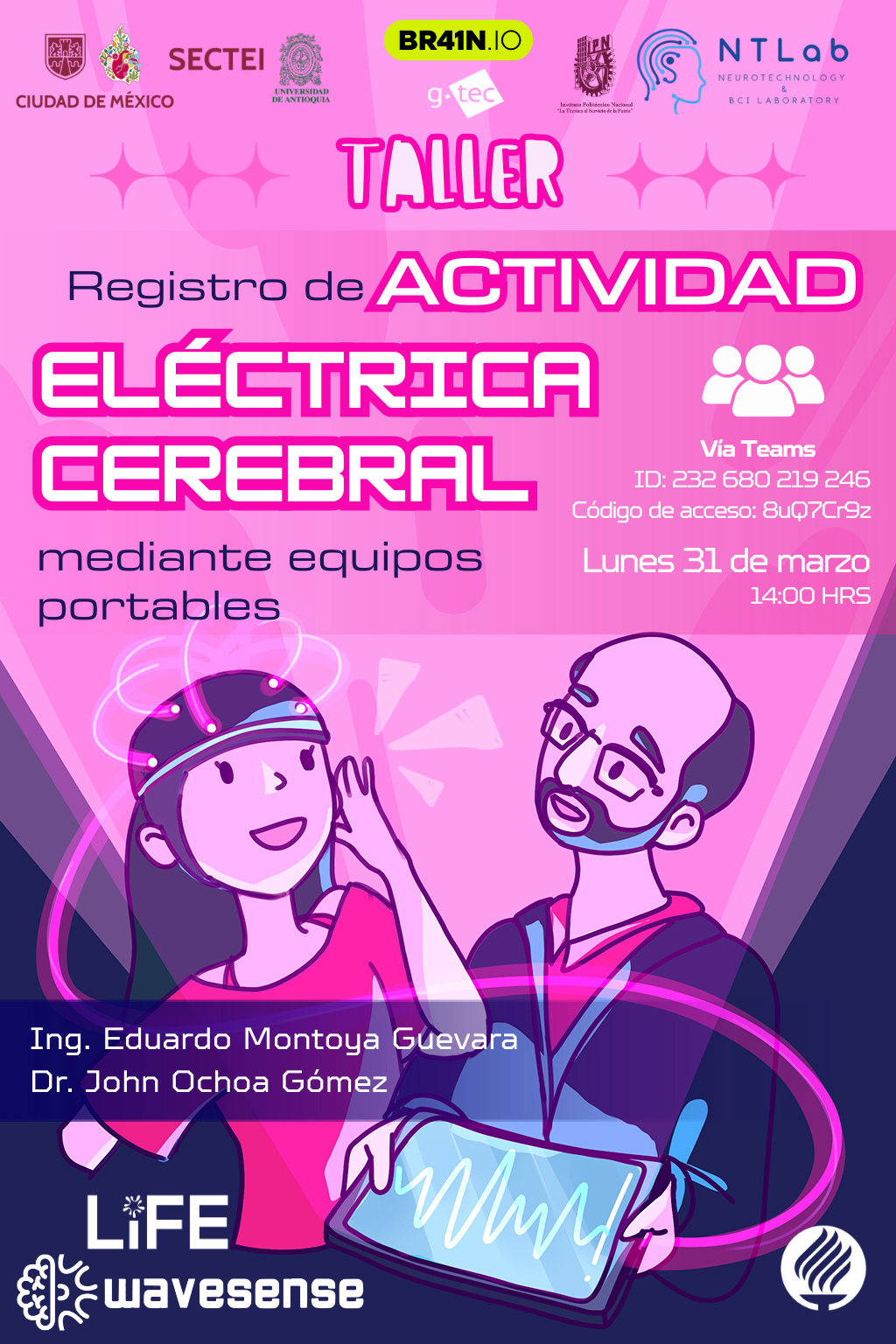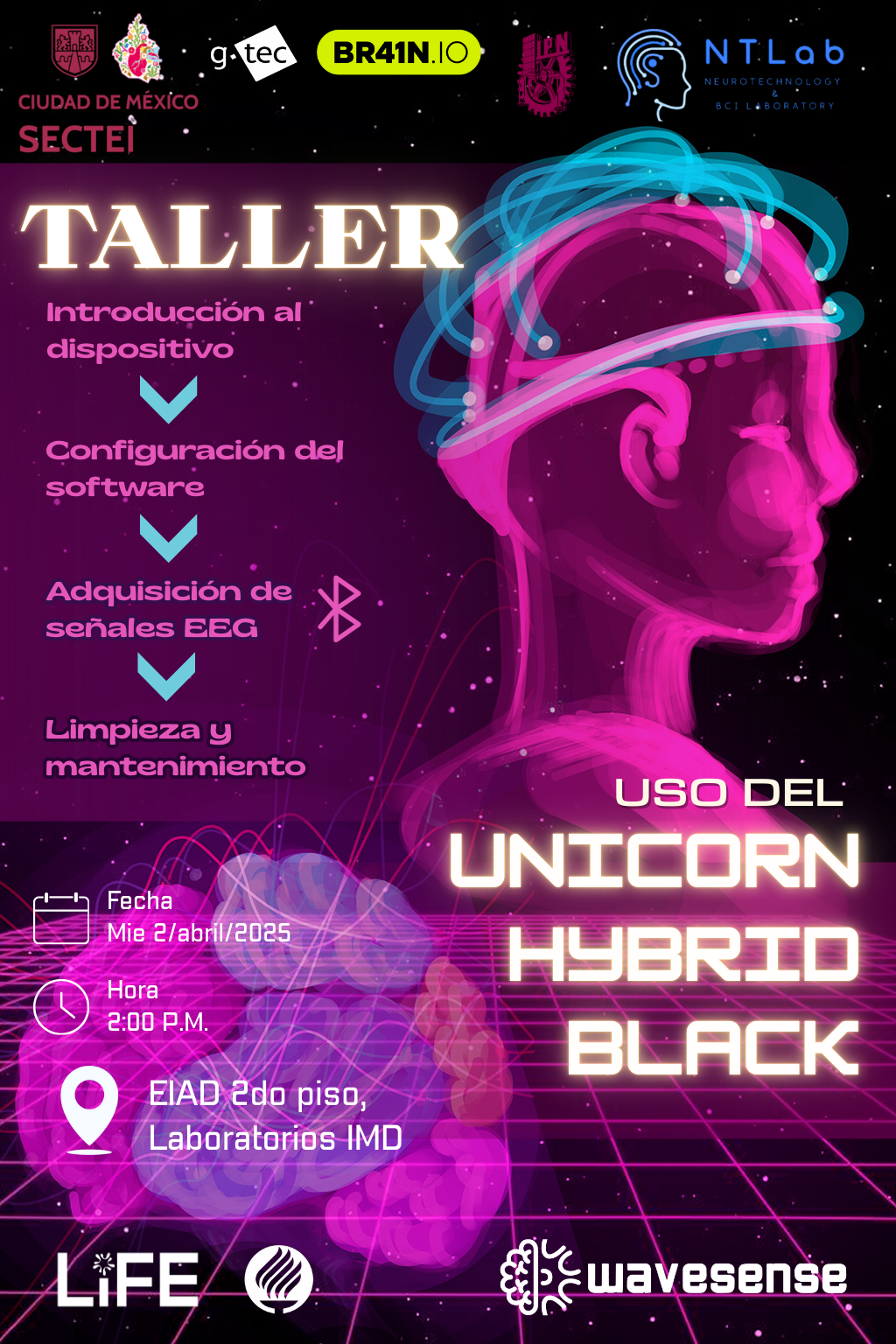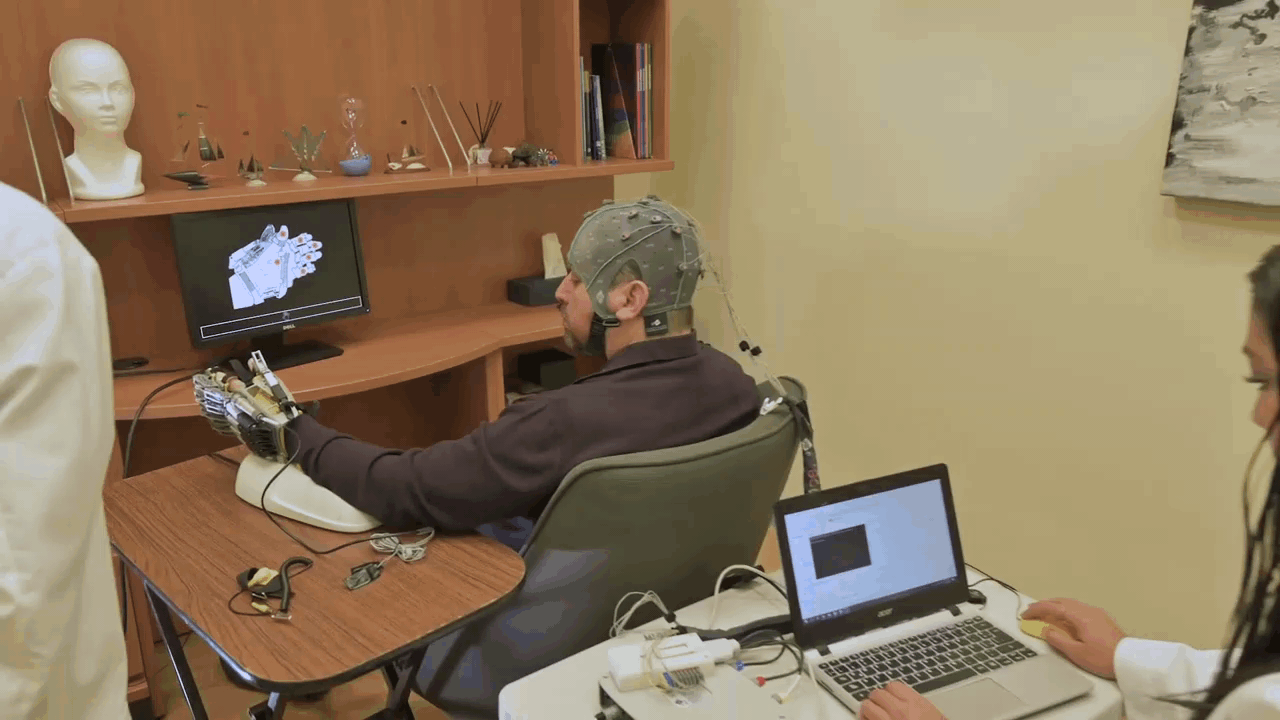
Neurotechnology and Brain-Computer Interface Laboratory (NTLab)
We are dedicated to developing innovative solutions for individuals with reduced mobility and communication abilities. Our research focuses on the study, interpretation, and decoding of electrophysiological signals, with the aim of creating advanced brain-computer interfaces that enhance communication, mobility, rehabilitation, and treatment options for people with neurodegenerative and neurological diseases, as well as those affected by natural aging.
Research lines
Explore our core research areas in neurotechnology and rehabilitation
Understanding Neuro-Motor and Cognitive Mechanisms
In this research line, we aim to investigate neural and physiological signals, along with behavioral information, recorded during real-life situations such as grasping a bottle, walking, or driving a car. We design, implement, and execute experiments to collect data that is used to explore how the brain and body respond to daily-life activities and how these responses change and adapt due to neurodegenerative and neurological diseases, accidents, and the aging process
Research Focus
- Neural signatures: Event related potentials, event related synchronization/desynchronization, connectivity, beta bursts
- Wearable tech: Mobile brain-body imaging
- Real-world validation: Home vs lab comparisons
- Therapeutic targets: Identifying plasticity markers
We design controlled experiments in daily activities (e.g., robotic based rehabilitation, object manipulation, locomotion) while recording multimodal data:
- Neural: EEG, fNIRS
- Physiological: EMG, inertial sensors, eye tracking
- Behavioral: Motion capture, task performance metrics
Biomedical Devices and Orthoses
In this research line, we focus on the design, construction, and testing of wearable devices for the evaluation of movement skills and the monitoring of motor symptoms associated with various clinical conditions such as amyotrophic lateral sclerosis and Parkinson’s disease. We also work on the implementation and validation of upper and lower limb orthotic devices aimed at facilitating and guiding movement recovery and rehabilitation interventions
Technology Development
- Wearable sensors: Movement skill quantification
- Symptom monitoring: Tremor, bradykinesia, fatigue
- Upper limb: Hand/wrist orthoses
- Lower limb: Gait-assist exoskeletons
- Home-use: Remote monitoring systems
Our development pipeline integrates:
- Mechanical design: 3D printing, lightweight composites
- Actuation: Soft robotics, servo motors
- Feedback systems: Real-time biofeedback algorithms
AI Methods for Biomedical Signal Decoding
In this research line, we apply machine learning and deep learning techniques to decode and extract motor information and cognitive states from neural and physiological signals. The aim is to enhance our ability to obtain information to provide fast and natural commands in BCI settings, and to interact naturally with assistive technologies for improved user experience and rehabilitative outcomes
Technical Approach
- Motor decoding: EEG/EMG pattern recognition
- Cognitive states: Attention/fatigue detection
- Neural responses: ERP, ERDS, bursts, connectivity
- Architectures: LDA, SVM, CNNs, RNNs
Innovation Focus
Developing user-independent models that maintain accuracy across patients with varying symptom severity.
Neurorehabilitation and Neuroprosthetics
In this research line, we integrate and develop real-time brain-computer interface (BCI) solutions designed to improve mobility and provide rehabilitative treatments for individuals with impaired mobility due to neurodegenerative and neurological diseases, or for those with reduced motor skills caused by physical lesions or aging. We validate the usability of our developed systems in controlled settings with healthy participants and in clinical environments with patients
Clinical Implementation
- Real-time BCIs: ERP, SSVEP, Motor imagery
- Neuroprosthetics: Hybrid EEG/EMG control
- Patient groups: ALS, SCI, Parkinson's
- Aging studies: Motor-cognitive decline trajectories
- Disease impact: Parkinson's, ALS, stroke biomarkers
- Rehab protocols: Upper limb, hand wrist
- Validation: RCTs with clinical endpoints
- Home use: Remote therapy monitoring
Projects
team
Meet the talented individuals behind NTlab.
Publications
Explore our latest research contributions and scientific work
Research Publications
News and Events
Stay updated with our latest activities and upcoming conferences
Contact
This is the contact section
